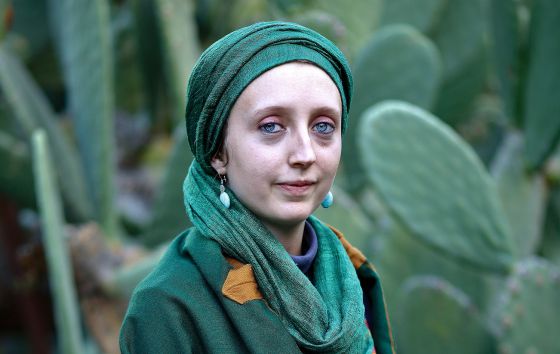From El Pais (Spain)

Known as the gateway to the Alpujarra mountains in Andalusía’s Granada province, Órgiva is also one of Spain’s most culturally diverse places, a bustling market town of around 6,000 people and according to the local council, home to 68 different nationalities.
And Baraka, a restaurant and tearoom with tables and chairs outside on a quiet street in the town center, is a pleasant reminder of Órgiva’s relaxed multiculturalism. It’s run by 41-year-old Pedro Barrio, a former wine taster and restaurant owner from Bilbao who changed his name to Qasim when he converted to Islam more than a decade ago.
Like around 35 other families in Órgiva’s Spanish Islamic community, Qasim adheres to Sufism, described by 14th-century Arab historian Ibn Khaldun as “dedication to worship, total dedication to Allah most High, disregard for the finery and ornament of the world, abstinence from the pleasure, wealth, and prestige sought by most men, and retiring from others to worship alone.”
Qasim says his faith gives him “hope and security,” but admits it has also caused him problems, particularly with his family and friends, who have come to associate Islam with jihadists and Salafists, and a radical interpretation of the Koran. Spain’s Sufi community has also been monitored by the National Intelligence Center.
Mansur, formerly José Carlos Sánchez, explains that Sufis live in the world without necessarily being of this world. “Every day I ask Allah to help me convert my ego into my prayer mat,” says the 41-year-old university graduate. “There is an undoubted rejection of Muslims in our society.”
His wife, Bahía (María José Villa), aged 35, agrees: “We converts are seen as strange. Islam isn’t what people think it is. Islam is peace. Islam is asking God for love, so that you can share that love with others. Unless your intention in life is to become pure love, then your Islam makes no sense.”
Muhammad Iskander, a former merchant seaman in his mid-fifties, says it is precisely the pacifist element of Sufism that Islamist radicals find so hard to accept: “They do not tolerate us, and are trying to abrogate the Koran’s message of mercy for that of the sword.”






